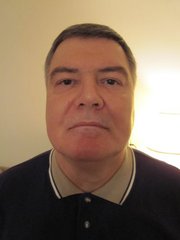Notes
1. See John Wesley Young. Totalitarian Language: Orwell's Newspeak and Its Nazi and Communist Antecedents. Charlottesville and London: University Press of Virginia, 1991.
2. Blaga Dimitrova. "Language and Politics in Bulgaria." Towards a New Community: Culture and Politics in Post-Totalitarian Europe. Ed. Peter J.S. Duncan and Martyn Rady. School of Slavonic and East European Studies, University of London, 1993, 133.
3. Ibid., 135.
4. Ibid.
5. Ibid., 144.
6. Ibid., 142.
7. George Orwell. "The Prevention of Literature." Orwell and Politics. Ed. Peter Davidson. London: Penguin Books, 2001, 384.
8. Ibid., 392.
9. George Orwell. "Politics and the English Language." Orwell and Politics. Ed. Peter Davidson. London: Penguin Books, 2001, 405.
10. Orwell, "The Prevention of Literature," 387. See also George Orwell's essay "Propaganda and Demotic Speech" in Orwell, All Art Is Propaganda: Critical Essays. Orlando, FL: Houghton Mifflin Harcourt, 2008, 223-31.
11. According to John Wesley Young, "the Orwellian Model of Totalitarian Language" includes six major components: intent of the rulers to control thought and behavior through language, exaltation of the state over the individual, violence and vilification, euphemism, special political terminology, and the failure of words to reflect reality," Totalitarian Language, 215. Of course, other possible components could be added to this model. For example, Aldous Huxley wrote in the Foreword to the 1946 edition (New York and London: Harper) of his dystopian novel Brave New World that "The greatest triumphs of propaganda have been accomplished, not by doing something, but by refraining from doing. Great is truth, but still greater, from a practical point of view, is silence about truth. By simply not mentioning certain subjects, by lowering what Mr. Churchill calls an 'iron curtain' between the masses and such facts or arguments as the local political bosses regard as undesirable, totalitarian propagandists have influenced opinion much more effectively than they could have done by the most eloquent denunciations, the most compelling of logical rebuttals." An example related to such "silence about truth" could be what took place on February 6, 2003, when the famous tapestry replica of Picasso's "Guernica" on display just outside the U.N. Security Council was covered with a huge blue drape while Secretary of State Colin Powell delivered his speech inside the chamber making the case for invading Iraq which was followed by a televised press conference Powell gave for attending journalists right in front of the covered-up tapestry.
12. See Dimitrova, "Language and Politics in Bulgaria," 133-45.
13. Young, Totalitarian Language.
14. See Rossen Vassilev, "The 'Third-Worldization' of a 'Second-World' Nation: De-development in Post-Communist Bulgaria." New Political Science 25:1 (March 2003), 99-112.
Next Page 1 | 2 | 3 | 4 | 5 | 6 | 7 | 8 | 9
(Note: You can view every article as one long page if you sign up as an Advocate Member, or higher).




